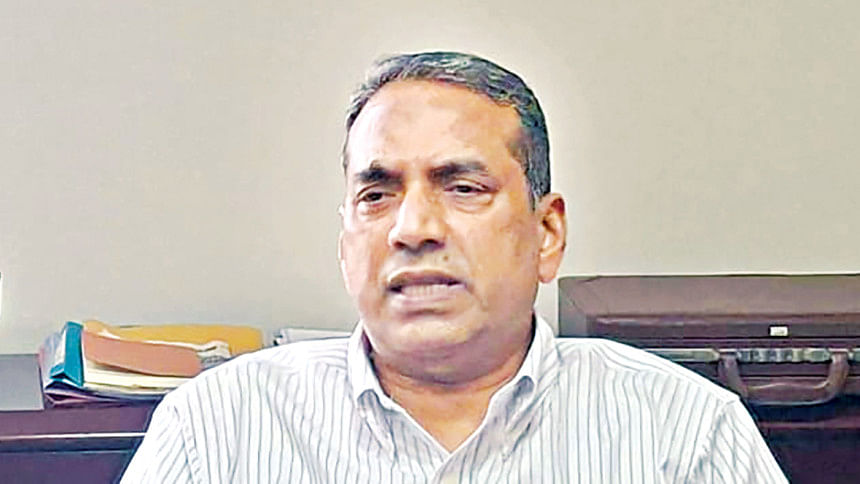Patent waiver till Nov 2026: Local pharmas may miss window for 15 costly drugs

Bangladesh's pharmaceutical companies risk losing the chance to produce at least 15 costly biologic drugs royalty-free, as registration applications for more than 600 new medicines remain stalled for over a year due to regulatory hurdles, say industry leaders.
Around 50 pharmaceutical firms have applied to the Directorate General of Drug Administration (DGDA) for registering 617 new medicines that include biologic drugs used for treating cancer and chronic diseases.

If we can't secure registration soon, we'll miss the opportunity to manufacture these drugs royalty-free once Bangladesh graduates from Least Developed Country [LDC] status next year.
The companies are set to lose patent protection ensured by a waiver under the WTO Agreement on Trade-Related Aspects of Intellectual Property Rights (TRIPS) in November 2026, when Bangladesh transitions to a developing country, say industry insiders.
"If we can't secure registration soon, we'll miss the opportunity to manufacture these drugs royalty-free once Bangladesh graduates from Least Developed Country [LDC] status next year," Abdul Muktadir, president of Bangladesh Association of Pharmaceutical Industries, told The Daily Star.
In March this year, the interim government decided to proceed with the country's scheduled transition from a LDC to a developing nation on November 24, 2026.
Patent protection typically lasts 20 years from the date of a drug's development. Five to 10 years have already passed since the development of some of the 15 drugs, leaving Bangladesh with a 10 to 15-year window for royalty-free production, Muktadir said.
"This window is critical. If we miss it, we must pay royalties to patent holders, meaning patients will have to shoulder the burden of inflated prices for these life-saving medicines," he added.
The Drug Control Committee, which gives final approval for new medicines, hasn't convened for the last two years -- the primary cause of the backlog. No steps have been taken yet to reconstitute the committee since the fall of the Awami League government, said several officials at DGDA and health ministry.
The registration process for a new medicine begins with a review by a technical sub-committee, chaired by the DGDA director general.
If the sub-committee recommends approval, the proposal is forwarded to the health secretary-led Drug Control Committee comprising government officials, experts, and industry representatives.
The sub-committee last held its meeting in March 2024, said DGDA officials.
Contacted, Prof Sayedur Rahman, special assistant to the chief adviser for the health ministry, said the previous committees required reconstitution due to their shortcomings. But that didn't happen, halting the drug registration process.
He maintained that the suspension has not created any crisis or deprived people of essential medicines.
"The committees will be reconstituted soon and hold meetings to decide on pending applications," he told The Daily Star recently.
According to DGDA officials, restructuring both committees became necessary due to leadership changes in various medical associations and institutions following the July mass uprising, as many of their representatives in the committees had affiliations with the AL.
WHY BIOLOGICS ARE CRUCIAL
Many of the biologic medicines, typically expensive in most countries, are being produced locally and sold at prices significantly lower than the global average.
Giving an example, Muktadir said an imported pre-filled syringe of Adalimumab, prescribed for rheumatoid arthritis and psoriasis, once cost Tk 1.65 lakh to Tk 3.6 lakh. Local production has reduced its price to as low as Tk 15,000.
Similarly, a cancer patient can now buy locally produced Filgrastim -- used for boosting immunity -- for Tk 7,000-8,000 per pre-filled syringe, while an imported one would cost Tk 85,000-95,000, he mentioned.
Unlike traditional drugs that are generally made from chemical ingredients, biologic medicines are derived from living organisms, including animals, microorganisms such as bacteria and yeast, or other living sources.
Monjurul Alam Monju, CEO of Beacon Medicare, said that once chemical drugs were the cornerstone of treatment, but now biologic medicines are transforming treatment for cancer, diabetes, arthritis, asthma, obesity and high cholesterol, offering more effective and targeted therapies with fewer side effects.
He said Bangladesh faces hurdles in adapting to this shift, as a sluggish regulatory process delays the introduction of new drugs.
Referring to regulatory complexities, Zahangir Alam, chief financial officer of Square Pharmaceuticals Ltd, said, "We believe the approval process could be more rationalised and better aligned with the needs of the pharmaceutical industry."
Md Morsaline Billah, professor of Biotechnology and Genetic Engineering at Khulna University, said Bangladesh's pharmaceutical sector has managed to keep prices of biologic medicines 30-40 percent lower than the global average. This affordability has been vital for patients here.
"But this advantage is at risk. With Bangladesh set to graduate from LDC status in 2026, full compliance with TRIPS will be required. Companies will need to pay high royalties or invest heavily in securing patents -- both of which are difficult and costly," he told this newspaper recently.
Local firms could face lawsuits and trade penalties if they produce these drugs without permission from patent holders, said Billah.
He warned that delays in regulatory approvals and outdated patent laws could undermine years of progress. "Drug prices may rise 25-30 percent, pushing essential medicines out of reach for many."
Billah suggested that the government negotiate transitional flexibilities with WTO members and reform the existing patent law.
Stressing the need for public-private partnership for technology transfer, he said, "Inaction is not an option… We must act now to protect access, sustain our industry, and seize global market opportunities."


 For all latest news, follow The Daily Star's Google News channel.
For all latest news, follow The Daily Star's Google News channel. 




Comments